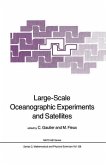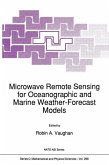The earth where we live is the only planet of our solar system that holds a mass of water we know as the ocean, covering 70.8% of the earth's surface with a mean depth of 3,800 m. When using the term ocean, we mean not only the water and what it contains, but also the bottom that supports the water mass above and the atmosphere on the sea surface. Modern oceanography thus deals with the water, the bottom of the ocean, and the air thereon. In addition, varied interactions take place between the ocean and the land so that such interface areas are also extended domains of oceanography. In ancient times our ancestors took an interest in nearshore seas, making them an object of constant study. Deep seas, on the other hand, largely remained an area beyond their reach. Modern academic research on deep seas is said to have been started by the first round-the-world voyage of Her Majesty's R/V Challenger I from 1872 to 1876. It has been only 120 years since the British ship leftPortsmouth on this voyage, so oceanography can thus be considered still a young science on its way to full maturity.
Dieser Download kann aus rechtlichen Gründen nur mit Rechnungsadresse in A, B, BG, CY, CZ, D, DK, EW, E, FIN, F, GR, HR, H, IRL, I, LT, L, LR, M, NL, PL, P, R, S, SLO, SK ausgeliefert werden.









